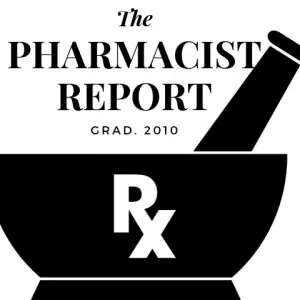Have you ever wondered what it takes to become a successful pharmacist? Consider the story of John, a recent high school graduate who has always been interested in healthcare and helping others. After researching different healthcare professions, John discovered his passion for pharmacy. However, he was overwhelmed by the path to get there.
If you can relate to John’s experience, look no further than this roadmap to guide you through the process of pursuing a rewarding career in pharmacy.
A career in pharmacy can be both challenging and rewarding, offering diverse opportunities for those looking to make a difference in the lives of others. With the healthcare industry constantly evolving, pharmacists play an important role in providing safe and effective medication therapy for patients.
This article will provide an overview of the pharmacy education pathway, career development options, and the various pharmacy career pathways available. Whether you are a high school student exploring career options, a college student considering pre-pharmacy studies, or a current pharmacy professional seeking career advancement, this article will serve as a valuable resource in achieving your goals.
Pharmacy is a diverse and dynamic profession, with over 100 career pathways that pharmacists can pursue, according to the International Pharmaceutical Federation. Here is a list of some of the major career paths in pharmacy, categorized by type:

Pharmacy Practice & Specialties:
1. Community Pharmacist – providing medication expertise and advice to patients in retail settings
2. Ambulatory Care Pharmacist – working in outpatient clinics, focusing on chronic disease management and medication therapy management
3. Clinical Pharmacist – working in hospitals, providing direct patient care and collaborating with healthcare teams
4. Geriatric Pharmacist – specializing in medication management for elderly patients
5. Oncology Pharmacist – specializing in medication management for cancer patients
6. Psychiatric Pharmacist – specializing in medication management for patients with mental health conditions
7. Pediatric Pharmacist – specializing in medication management for children
8. Emergency Medicine Pharmacist – working in emergency departments, providing medication expertise and optimizing medication therapy
Pharmaceutical Industry Roles:
9. Medical Science Liaison – serving as a bridge between pharmaceutical companies and healthcare providers
10. Drug Information Specialist – providing information about medication to healthcare professionals, patients, and the public
11. Clinical Research Associate – overseeing clinical trials and ensuring compliance with regulations and protocols
12. Medical Writer – preparing and editing clinical and scientific documents, such as research papers, regulatory submissions, and educational materials
13. Medical Affairs Specialist – working with healthcare providers to ensure safe and effective use of medication
14. Regulatory Affairs Specialist – ensuring compliance with regulations and policies related to medication development and approval
Academic Pharmacy Roles:
15. Pharmacy Professor – teaching and conducting research in pharmacy schools and universities
16. Pharmacy Residency Director – overseeing pharmacy residency programs
17. Continuing Education Director – developing and implementing continuing education programs for pharmacists
Government & Regulatory Roles:
18. FDA Reviewer – evaluating and reviewing new drug applications submitted to the FDA
19. Drug Inspector – ensuring compliance with drug regulations and policies
20. Public Health Pharmacist – working in public health settings, such as health departments and clinics
Technology & Health Informatics Pharmacy Roles:
21. Pharmacy Informatics Specialist – optimizing the use of technology in pharmacy settings
22. Telehealth Pharmacist – providing medication expertise and advice to patients remotely
23. Digital Health Pharmacist – developing and implementing digital health solutions
24. Clinical Software Pharmacist – developing and implementing clinical software solutions in healthcare settings
25. Medication Management System Developer – designing and developing medication management systems for healthcare providers
Non-Traditional Pharmacy Career Pathways:
26. Space Health Pharmacist – providing medication expertise for astronauts and space missions
27. Business Adviser – providing medication expertise for businesses and organizations
28. Medication Safety Management Specialist – ensuring safe and effective medication use in healthcare settings
29. Pharmacy Programs Coordinator – coordinating pharmacy programs and initiatives
30. Pharmacogenomics Specialist – developing and implementing pharmacogenomic testing and medication regimens
Other Pharmacy Career Pathways:
31. Pharmacy Financial Consultant – providing financial expertise for pharmacy businesses and organizations
32. Pharmacy Research Coordinator – overseeing pharmacy research projects
33. Supply Chain Pharmacist – managing the supply chain for medication in healthcare settings
34. Clinical Inspector – inspecting healthcare facilities and pharmacies for compliance with regulations and policies
35. Poison Control Pharmacist – providing medication expertise and advice for poison control centers
36. Military Pharmacist – providing medication expertise and support for military personnel and their families
37. Nuclear Pharmacist – preparing and dispensing radiopharmaceuticals for diagnostic and therapeutic purposes
38. Public Health Service Pharmacist – providing medication expertise and support for public health initiatives
39. Reimbursement Specialist – ensuring reimbursement for medication in healthcare settings
40. Pharmaceutical Sales Representative – promoting and selling medication to healthcare providers
These are just a few of the many career paths available to pharmacists. With their medication expertise and diverse skill sets, pharmacists can serve in a variety of roles in healthcare, academia, industry, government, and beyond.
Pharmacy Education Pathway
The pharmacy education pathway, which involves completion of pre-pharmacy study at an accredited college or university followed by 3-4 years of professional Pharm.D. curriculum, is a crucial step towards legally practicing as a pharmacist in the U.S.
Pre pharmacy requirements vary by institution but generally include courses in biology, chemistry, physics, mathematics, and English. Some pharmacy schools offer early assurance pathways to pre-pharmacy students, while others do not require a bachelor’s degree before entering the professional Pharm.D. curriculum.
For those seeking to complete their education faster, some pharmacy institutions offer accelerated programs that require the same amount of professional coursework to be completed within 3 years. However, these programs tend to be more rigorous and require students to have a strong academic background.
Regardless of the route taken, all Pharm.D. graduates must successfully complete the North American Pharmacist Licensure Examination (NAPLEX) and other licensure assessments required by a state board of pharmacy before they can legally practice as a pharmacist in the U.S.
Career Development Options
One potential avenue for further professional growth within the field involves pursuing postgraduate training through residency or fellowship programs, or obtaining board certification in a specialized area of practice.
Residency programs are typically 1-2 years of postgraduate training that provide pharmacists with an opportunity to gain experience in a clinical setting focused on certain patient populations or disease states. Fellowship programs, on the other hand, are individualized postgraduate training with a focus in academia, research, or industry.
Obtaining board certification demonstrates pharmacy expertise in a specialty area of practice, such as ambulatory care, cardiology, or oncology. Specialty certifications offer several benefits to pharmacists. They demonstrate advanced knowledge and expertise in a specific area of practice, which can lead to increased job opportunities and higher salaries.
Additionally, pharmacists with specialty certifications are often sought after for leadership positions within the profession. Postgraduate training through residency or fellowship programs can also enhance a pharmacist’s clinical skills and knowledge, while providing opportunities for networking and professional development.
Overall, pursuing further education and certification in pharmacy can lead to a rewarding and fulfilling career.
Pharmacy Career Pathways
Licensed pharmacists have the opportunity to choose from numerous specialized or advanced practice pathways within the field. These pathways include ambulatory care, cardiology, compounded sterile preparations, critical care, geriatric, infectious diseases, nuclear, nutrition support oncology, pediatric, pharmacotherapy, and psychiatric. Pharmacists can also pursue management and administrative positions in hospitals, retail pharmacies, and other healthcare facilities. Additionally, pharmacists can work in academia, research, or industry, pursuing fellowships or board certifications to demonstrate their expertise in a specialty area of practice.
The pharmacy job market is expected to grow steadily in the coming years, with a job outlook of 3% from 2019 to 2029, according to the Bureau of Labor Statistics. The demand for pharmacists is driven by many factors, including the aging population, the increasing number of chronic diseases, and the expansion of pharmaceutical services. Pharmacists are also playing a more significant role in patient care, collaborating with other healthcare professionals to optimize medication use and improve patient outcomes.
With the wide range of career options available, pharmacists have the flexibility to choose a career path that aligns with their interests, skills, and values.
Frequently Asked Questions
What are the job prospects for pharmacists in the current market?
The job prospects for pharmacists are expected to grow 3% from 2019-2029, according to the Bureau of Labor Statistics. Salary comparisons show that pharmacists earn a median annual wage of $128,090 in the U.S.
How has the role of pharmacists evolved over the years?
Pharmacists’ changing role has been influenced by pharmaceutical advancements. They have transitioned from dispensing medications to providing patient-centered care, conducting medication therapy management, and collaborating with healthcare teams to optimize patient outcomes.
Are there any emerging technologies that are changing the field of pharmacy?
Pharmacy is experiencing technological advancements, such as pharmacy automation and telepharmacy, which are changing the field. These advancements have the potential to increase efficiency, improve patient outcomes, and expand access to pharmacy services.
What are some common misconceptions about the pharmacy profession?
Pharmacy career misconceptions include the belief that pharmacists only count pills and don’t interact with patients, or that the profession lacks opportunities for career advancement. These common myths are inaccurate and fail to reflect the diverse and rewarding nature of the pharmacy profession.
How do pharmacists work with other healthcare professionals to provide comprehensive patient care?
Pharmacists collaborate with other healthcare professionals through interprofessional communication to provide comprehensive patient care. This involves working as a team to optimize medication therapy and ensure patient safety, while also addressing other aspects of patient care such as lifestyle modifications and disease management.

